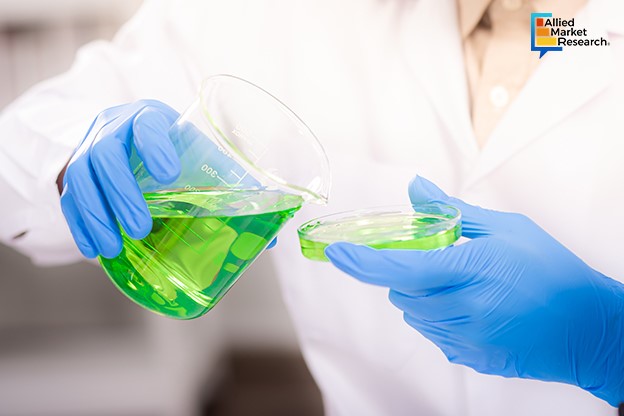How Do Sustainable Sourcing of Oleochemicals Boost Your Brand Impact?

18 Apr
2024
Highlights
- Introduction
- Futuristic trends in the oleochemicals industry
- Key collaborations and R&Ds
Oleochemicals are derived from natural sources such as plant or animal fat. Activated carbon is commonly employed to decolorize, deodorize, and purify oleochemicals, fatty acids & their derivatives. Oleochemicals are biodegradable and possess low toxicity, which makes them environmentally friendly. Both scientists and consumers perceive these products as green, natural, organic, renewable, biodegradable, and safe.
Oleochemicals have diverse applications across industries, including detergents, soaps, personal care products, greases, and lubricants. Major oleochemicals comprise fatty acid methyl esters, fatty acids, fatty amines, and fatty alcohols with glycerol being a byproduct of these processes. The Fatty Alcohol segment has experienced rapid growth, with a CAGR of 3.0%, as fatty alcohols are derived from natural sources such as vegetable oils and animal fats. These alcohols possess long hydrocarbon chains and find wide-ranging applications across various industries. Their biodegradability makes them environmentally friendly, which is particularly valuable in applications such as detergents and personal care products, where biodegradability is a desirable attribute.
Prominent trends in the oleochemicals industry
- Demand for sustainable sourcing
A noticeable shift has been observed toward sustainable sourcing in the oleochemicals procurement industry, driven by rise in demand for environmentally friendly alternatives to petrochemical-based products. Many industries and consumers prefer oleochemicals made from renewable sources like plant oils and fats. This transition is motivated by environmental concerns and the goal of reducing carbon footprint.
The applications of these oleochemicals are diverse in various sectors, including coatings, pharmaceuticals & nutraceuticals, elastomers, sealants, adhesives, household & industrial cleaning, grease, metalworking, and lubricants, as well as in food production. They are used in formulations of specific compounds such as soy-based products, glycerin (glycerol), octyl stearate, castor oil, polyhexanide, zinc stearate, cleansing agents, surfactants, foam boosters, and emulsifiers.
- Surge in adoption in the food and beverage sector
Oleochemicals are used in food and beverage production as stabilizers, thickeners, and other additives in processed foods and beverages. Furthermore, the animal nutrition sector represents a rapidly expanding application area for oleochemicals. Incorporating oleochemicals into animal feed offers multiple benefits to animal health, such as enhancing digestibility, promoting antimicrobial activity, and providing a high-energy source.
Asia-Pacific dominates the oleochemicals sector
Recent advancements and modernization in oleochemicals manufacturing plants across Asia-Pacific have propelled industry growth by providing producers with a competitive edge over overseas competitors and offering superior raw material integration. In addition, the growth in this sector in the region is driven by a shift in consumer preference toward renewable products, lower manufacturing costs, and the presence of a robust raw material base. Among Asia-Pacific countries, Vietnam's oleochemicals sector is expected to have the fastest CAGR of 6.5% by 2032.
Frontrunner's strategies to dominate the industry
The oleochemicals industry is dynamic, and key players have adopted novel strategies such as mergers, partnerships, acquisitions, collaborations, and new product launches to sustain the competitive industry. For instance, Sukano collaborated with Emery Oleochemicals, a manufacturer of natural-based chemicals, to manufacture a transparent PET antifogging compound for PET packaging intended for food contact applications in October 2022. The goal is to eliminate the requirement for additional antifogging coatings. This material incorporates Sukarno’s co-polyester compound in one cap-layer of a film extrusion line A/B structure, with PET as the core layer and is developed for rigid & oriented Coex films.
Moreover, in July 2023, ThyssenKrupp Uhde Thailand secured a contract from BASF SE (Ludwigshafen, Germany) for the supply of proprietary equipment for the NIS (new non-ionic surfactant) plant and engineering services at its Zhanjiang Verbund Site Project in China. The plant is expected to use ThyssenKrupp Uhde GmbH’s proprietary jet loop reactor technology. Non-ionic surfactants are manufactured from oxides and an alcohol starter through alkoxylation. These surfactants have widespread applications as emulsifiers in pharmaceuticals, cosmetics, and various other products, including washing-up liquid, herbicides, household cleaners, and grease removers.
To conclude, the global oleochemicals industry has gained momentum due to the durability & lower cost of basic materials, heightened demand for biodegradable & sustainable materials, and shift toward bio-based raw materials. However, an increase in demand for biofuels is projected to open new avenues for the oleochemicals industry in the upcoming years.
For detailed estimations of the global oleochemicals industry with segmentation and competitive landscape, feel free to contact us!

Koyel Ghosh
Author’s Bio- Koyel Ghosh is a blogger with a strong passion and enjoys writing in miscellaneous domains, as she believes it lets her explore a wide variety of niches. She has an innate interest in creativity and enjoys experimenting with different writing styles. A writer who never stops imagining, she has been serving the corporate industry for the last five years.
Analyzing the Increasing Preference of Construction Companies for Artistic and Stained Glass
Avenue: Entire Library membership of Allied Market Research Reports at your disposal
- Avenue is an innovative subscription-based online report database.
- Avail an online access to the entire library of syndicated reports on more than 2,000 niche industries and company profiles on more than 12,000 firms across 11 domains.
- A cost-effective model tailored for entrepreneurs, investors, and students & researchers at universities.
- Request customizations, suggest new reports, and avail analyst support as per your requirements.
- Get an access to the library of reports at any time from any device and anywhere.
Related Post
-
How are Submarine Cables Transforming Global Connectivity with Enhanced User Experience?
-
Endoscopy Procedures: Transformations in Techniques and Applications
-
AI-Powered Video Analytics: How the Product Actually Works for enterprises
-
Painting Robots: Transforming Precision Coating and Creative Applications
-
Innovations in Pharmacovigilance Systems Advancing Patient Safety
-
Understanding Edge Security: Keeping Data Safe Near the Source
-
Exploring the Use and Advancements of 3D Laser Scanners in Professional Applications
-
Reinforcing Industrial Controls with Smarter Tools and Training








